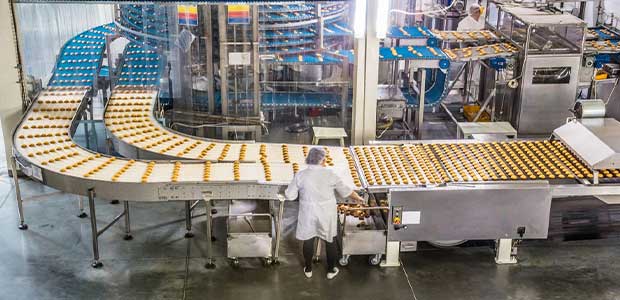
How OSHA Should Incorporate Food Plant Safety Mandates
- By Jane Marsh
- Jun 29, 2021
All industries face safety hazards in the workplace. From construction sites to office desk jobs, companies tend to issue safety protocols that all employees should be aware of in the case of an incident. However, one specific industry that needs more mandates to protect its employees from illness or injury is the food manufacturing industry.
In 2019, food plants across the country employed 1.7 million people, making up 14.7 percent of all manufacturing employment. Food plants produce all types of food that make their way into the homes of average consumers. Regardless of what food plants are producing, it's vital to take safety precautions when handling any food.
OSHA is one federal organization that also sets forth mandates and standards for specific occupations. Because every profession has unique hazards, OSHA approves and regulates safety health conditions in most privately-run enterprises.
However, food plants lack the mandates necessary to keep workers safe. This can cause workers to fall ill or get injured, leading to employee absenteeism and making it more challenging to process and ship products. This was apparent in 2020 with the COVID-19 pandemic.
Discussing the importance of food safety and OSHA's role in creating effective regulation is crucial in today's food industry.
The Importance of Safety Mandates
Labor laws are in place for a reason: to protect employees when they're on the job. Working in the food processing industry should be no exception. Without proper standards in place, employees are left more vulnerable and may not complete their daily tasks.
The National Institute of Food and Agriculture (NIFA) agrees that using science-based principles to regulate and monitor food production across all processes is necessary. The nation's food supply chains are subject to volatility. If working environments are unsafe, it only adds to the unpredictability.
Some organizations work to form guidelines for food safety, including the FDA and the CDC. Companies should do their best to follow these guidelines to ensure their employees and consumers remain healthy.
So, how does OSHA have anything to do with the food production industry?
OSHA's Role in Food Plant Safety
Although OSHA concerns itself with safety protocols in the workplace, it's unclear how they plan on improving food safety across the board.
Currently, food plants lack the mandates necessary to keep workers safe. This can cause workers to fall ill, increase absenteeism and make it more challenging to process and ship products. This was apparent in 2020 with the COVID-19 pandemic.
OSHA has general guidelines and safety recommendations for occupations of all kinds. However, because it has no specific preventative measures, food plants can take it upon themselves to set their requirements. When it comes to reducing food waste or being more environmentally friendly, food plants can benefit from creating their own standards. However, it could also negatively impact employees if these types of practices are not prioritized.
As long as plants comply with OSHA's general guidelines, they're able to continue production. However, suppose executives prioritize cost-effectiveness over employee safety. In that case, it can lead to unsafe practices and employees being more at-risk.
Improvements to OSHA Safety Measures
How can OSHA improve its food plant safety mandates? There's enough research available for OSHA to accomplish this goal, and it is paramount that they do so.
Here are some ways OSHA can incorporate new mandates and requirements for food plants to follow.
Require Employee Training
Aside from time spent, there are rarely any downsides to training employees or retraining existing employees on food safety. When employees are aware of the threats they face while on the job, they're less likely to occur. Whether it's avoiding a fall or always using gloves while handling food, OSHA should require thorough food plant safety protocols.
Implement Required Safety Programs
Based on OSHA's current guidelines, they could benefit from an update. Providing specific ways to eliminate safety hazards in food plants allows employees to feel protected and safe in their workplace. This could lead to higher productivity and an improved return on investment (ROI) for the plant itself. OSHA should also consider hiring inspectors to ensure food plants are following its standards closely.
Fine Companies When Necessary
OSHA is already capable of fining companies who are failing to comply with their general guidelines. If they choose to deliver more specific requirements, they can exercise this ability to fine as a consequence. Increasing the amount on a fine will undoubtedly impact a food plant and cause them to take food safety seriously.
Change cannot happen without a strategy. If OSHA is genuinely committed to keeping employees safe from occupational hazards, they should consider setting specific mandates.
Keeping Food Plants Safe
For the economy to grow, employees need to be efficient in achieving their tasks and be held accountable for their responsibilities. It's challenging when safety becomes an issue in the workplace, and it's up to OSHA to intervene and allow food plants to operate under specific requirements.